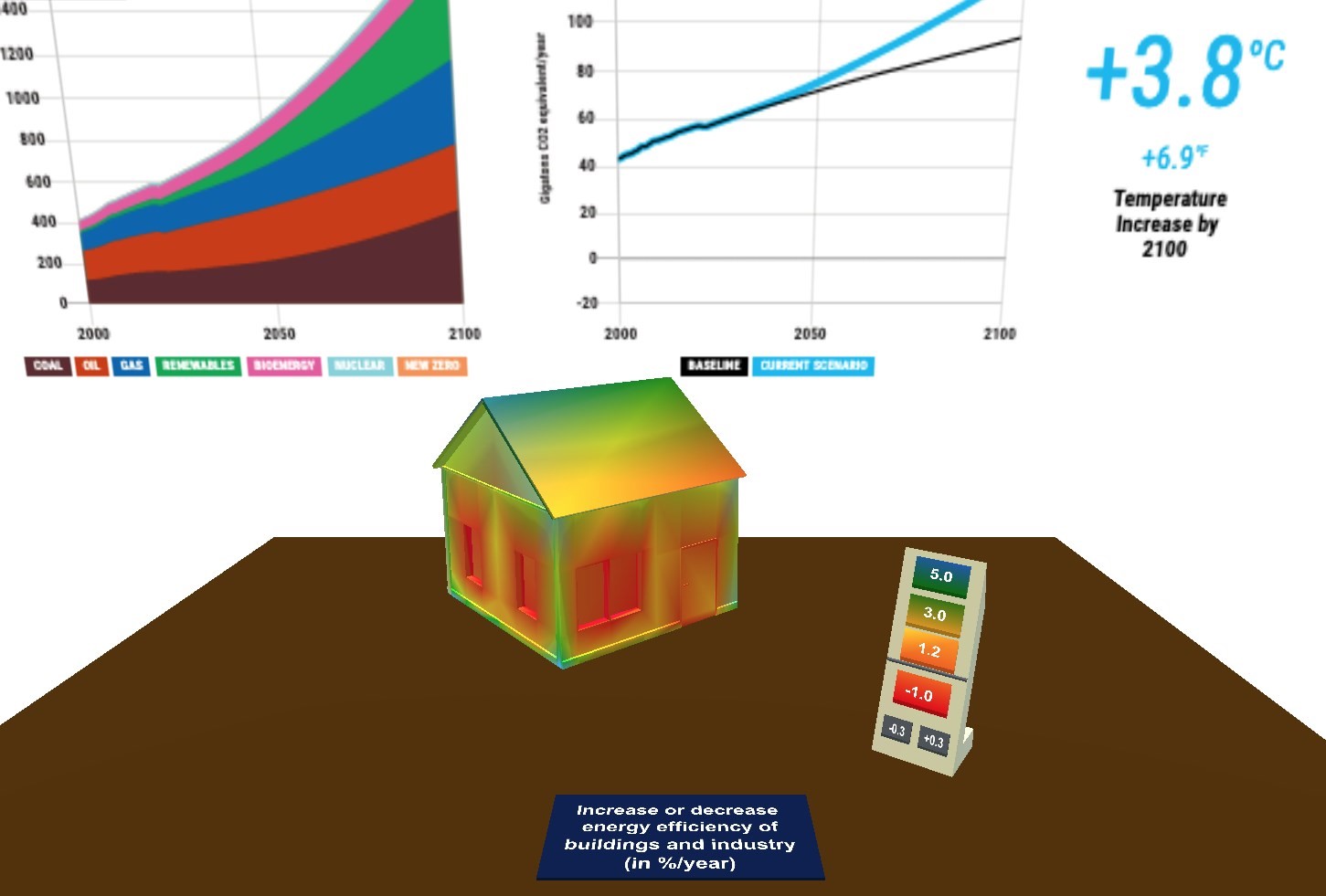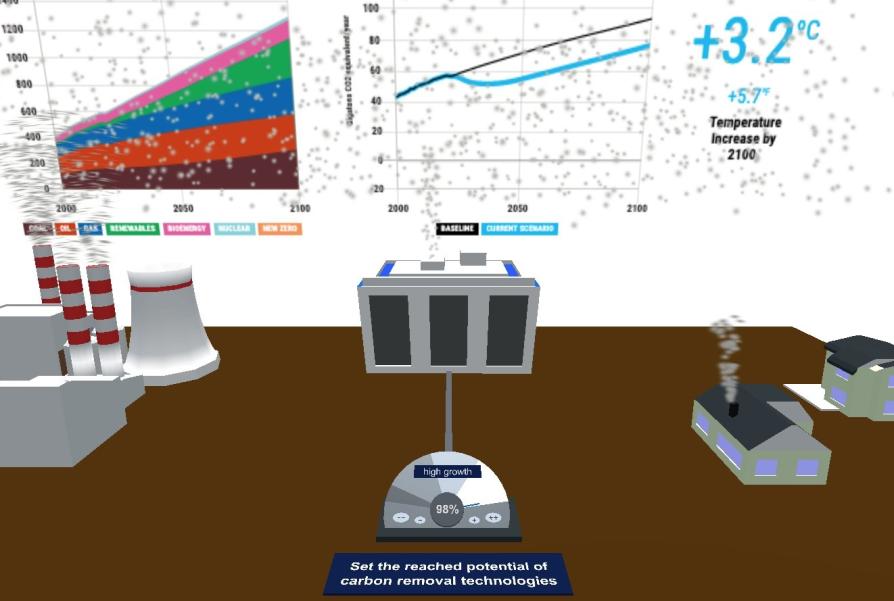Project description
This project aims to transform the quantitative model En-ROADS into an immersive, interactive, Climate Education Simulation (CES) that provides a realistic learning context, with easy access to all relevant information, to teach students
about the interactive factors involved in effective strategies.
We assume the CES will lead to better cognitive processing of the contents. Therefore, we also want to evaluate the effectiveness of the CES for teaching and learning about climate change and mitigation strategies. In patricular,
whether the CES can effectively:
- foster students‘ knowledge about the causes, dynamics, and impacts of global warming (cognitive goal domain)
- promote the sense of responsibility, locus of control, feelings of urgency and hope (affective-motivational domain)
- support behavioral change on the individual level, such as translating concerns into effective everyday actions and engaging in mitigation and adaptation actions (behavioral domain)
But why virtual reality?
- VR enables us to present this complex subject in a spatially well-structured learning environment.
- VR provides students the possibility to vary and control factors involved in climate change and observe their impact on the temperature or sea level.
- VR offers students immediate feedback. Therefore, VR enables students to try different mitigation strategies.
So what´s new?
- We spatially structure the CES in a way that provides students the relevant context for each sector that is involved in climate change.
- We propose that students’ immersion in the CES and embodied cognition will help them to effectively learn about climate change and mitigation strategies.
- The CES offers students the possibility to be actively engage in their learning process by testing different scenarios and evaluates the outcomes of these variations.
Get an impression:

The scenario shown here allows to change the state of the energy efficiency slider, represented by the infrared rendering of a house.

The scenario shown here allows to change the state of the techno-logical carbon removal slider.
Interested in first findings?
Hannah Schütt under the supervision of Prof. Dr. Martin Butz has won a Sustainability Awards 2021 of the University of Tübingen.
Her contribution can be seen at Minute 42:00 in the video.
Project team
Core team at the HIB:
· Joseph Ferdinand
· Prof. Dr. Richard Göllner
· Philipp Stark
Further contributors and collaborations:
Cognitive Modeling Group
· Prof. Dr. Martin V. Butz
· Dr. Asya Achimova
